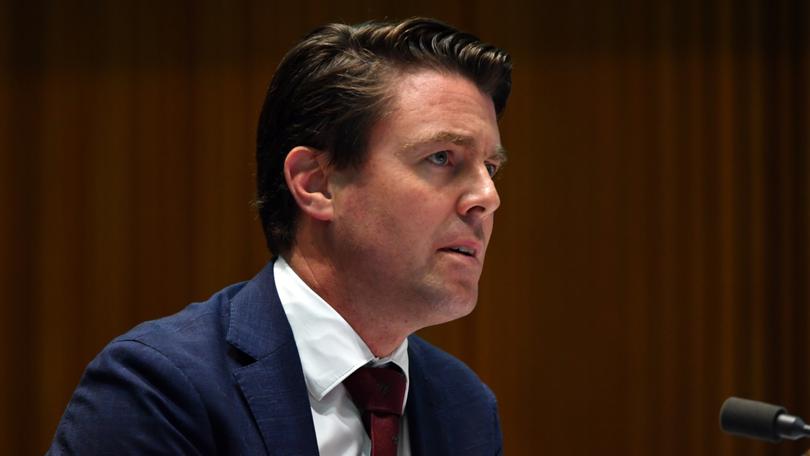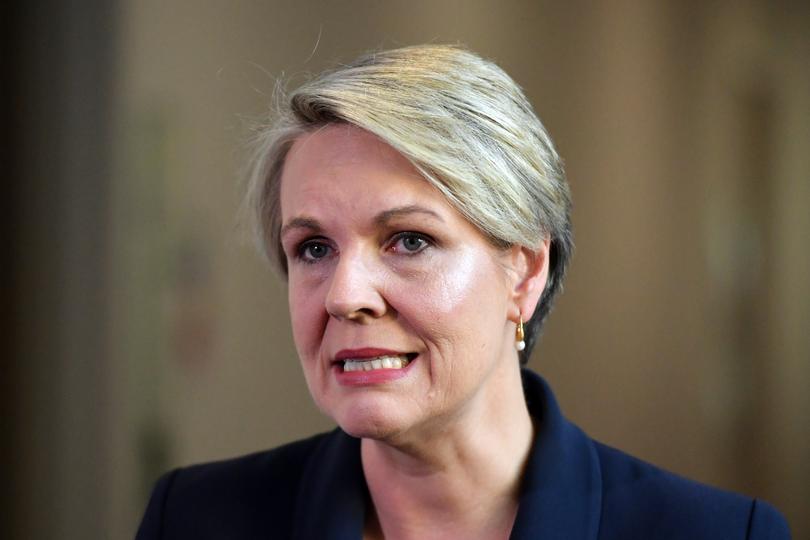Coalition slams Government over ‘joke’ consultation on proposed Nature Positive environmental law changes
The Coalition has slammed the Government over its ‘secrecy’ on proposed environmental law changes, with Senator Jonathon Duniam saying the consultation process ‘had been nothing short of a joke’.

Shadow environment minister Jonathon Duniam has attacked the Albanese Government over the secrecy surrounding proposed changes to national environmental laws that business and industry fear will increase uncertainty and slash investment.
His comments come after The Nightly published concerns outlined in a leaked Minerals Council of Australia briefing note on the proposed overhaul of the Environment Protection and Biodiversity Conservation Act, including that penalties would soar to nearly a billion dollars.
Senator Duniam said the current laws were not fit for purpose but said the consultation process “had been nothing short of a joke” after business and industry were barred from taking phones and laptops into lock-up style meetings.
Sign up to The Nightly's newsletters.
Get the first look at the digital newspaper, curated daily stories and breaking headlines delivered to your inbox.
By continuing you agree to our Terms and Privacy Policy.“No one’s allowed to take phones in, no one’s allowed to take computers, laptops, iPads in, they have to hand write down their notes and that, apparently, is the consultation,” he told Sky.
“A lot of the concerns that have been expressed, as evidenced by the Minerals Council’s views expressed publicly today, have been completely ignored when it comes to certainty around these laws.
“So, it’s happening in a black box.”
A 2020 review of the EPBC by former Australian Competition and Consumer Commission chairman Graeme Samuel found the laws were ineffective and increased the cost to businesses without adequately protecting the environment.
Environment Minister Tanya Plibersek announced an overhaul of the EPBC in December 2022 and promised to strengthen environmental protections, slash red tape and speed up decision-making times.
Last month, Environment Department Deputy Secretary Dean Knudson told the environment and communications legislation committee that stakeholders had left with “sore arms” after attending consultation sessions.
“I can tell you that there are a lot of sore arms at the end of the sessions, from people taking notes,” he said.
“We’ve encouraged people to take notes on anything they wish to.
“That has meant that the stakeholders who’ve attended have left with really exhaustive notes on what’s proposed in the policy papers before they’re released to the public a month or so later.”
Normally during a consultation process, the concerned department will release a discussion paper and the industry will respond with submissions.
About 200 people were involved in stakeholder consultations held in February as well as in October and December last year, and the Environment Department has also hosted webinars with about 2000 participants.

A spokesperson for Ms Plibersek said environmental laws were complex and the department had met with industry and the Minerals Council on several occasions to discuss the proposed reforms.
“Experts from almost 100 groups, including the Minerals Council, are carefully examining draft parts of the legislation to make sure the laws will be as effective as possible,” she said.
“They will keep seeing the draft legislation as consultation continues.”
Minerals Council chief executive Tania Constable said the industry was committed to working constructively with the Federal Government on the reforms.
“Approvals are taking too long, tied up in endless red tape and crisscrossing governments and bureaucracy, wasting taxpayers’ money,” she said.
“We need to get this process right, marrying the importance of environmental stewardship with the necessity of getting sustainable projects off the ground in a timely manner.”
Other industry concerns with the proposed laws include expanding the scope of heritage areas and a lack of clarity over whether the minister or the soon-to-be-established federal environmental protection agency will have the final say on applications.

